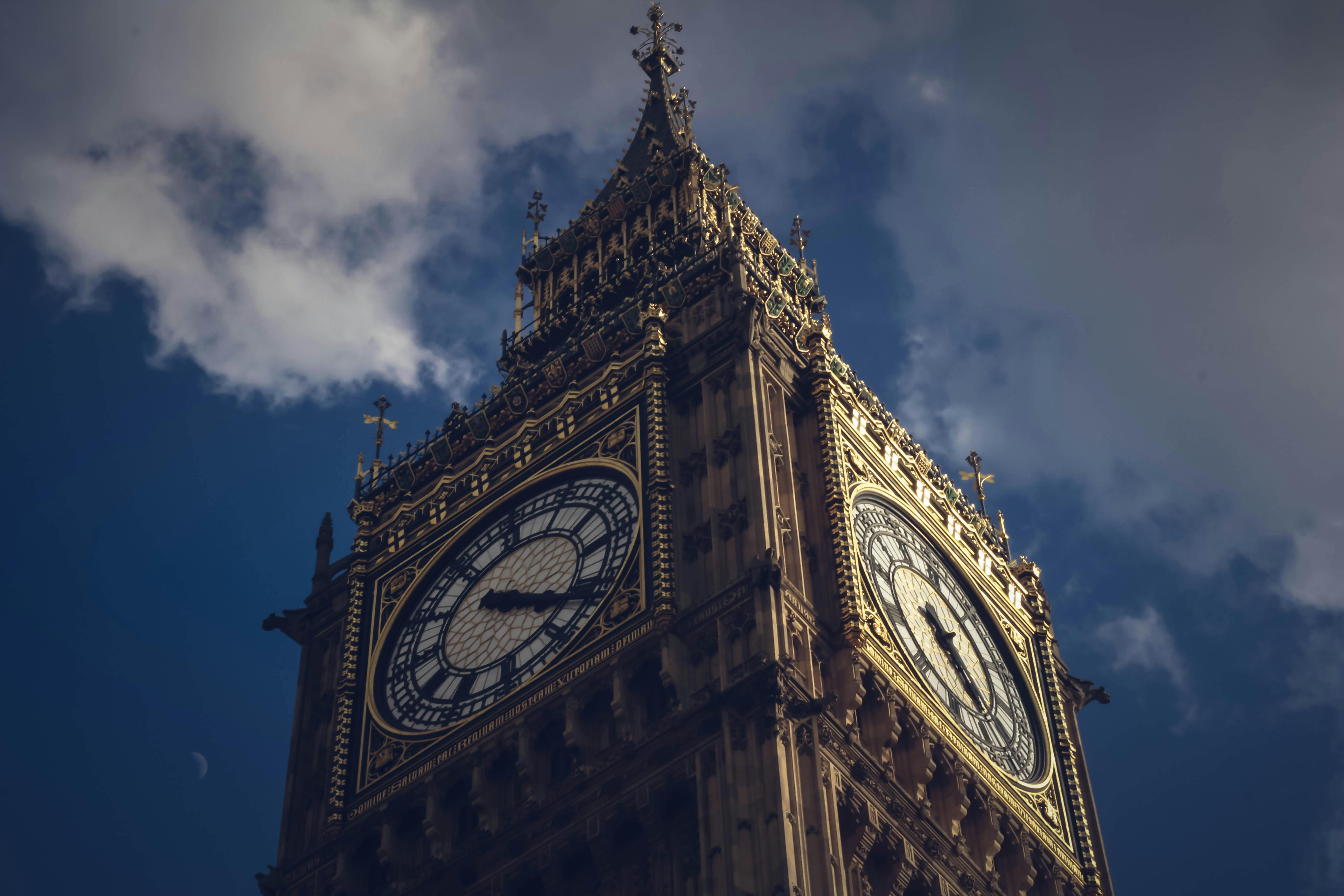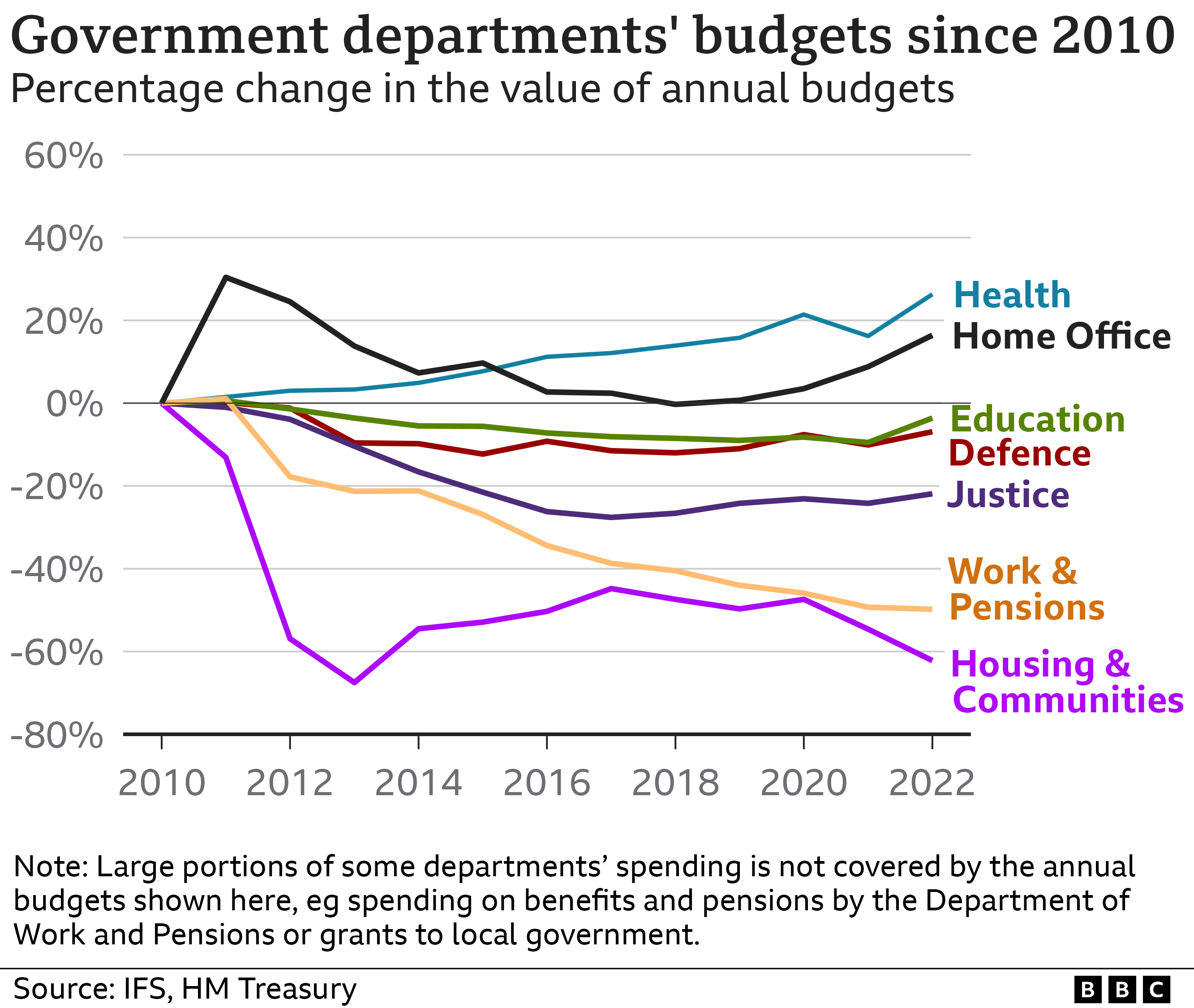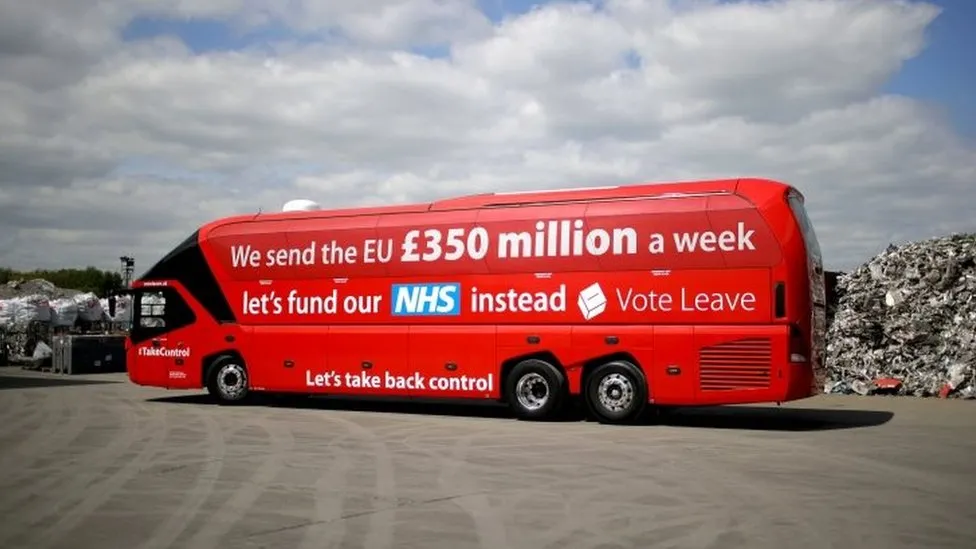It's time for change
From austerity to Brexit chaos, 14 years of Conservative rule have left Britain reeling. It's time for change

Thursday, 4th July 2024… A date that rings with historical significance.
Across ‘the pond’, our American friends celebrate Independence Day, colloquially known as ‘The Fourth of July’. This holiday commemorates a pivotal moment in history: the ratification of the Declaration of Independence on July 4, 1776.
248 years ago, 56 visionary delegates, including future Presidents John Adams and Thomas Jefferson, along with Benjamin Franklin, signed this revolutionary document. Their bold action granted the 13 Colonies freedom from British rule, which they believed was stifling America’s potential.
This declaration not only established the United States as a sovereign nation but also set it on the path to becoming the world power it is today. The signatories had grown weary of British governance and were determined to chart their own course in history.
Their grevances sounded eerily familiar, citing:
- A violation of their rights
- Restrictions on their trade & industry
- Taxation without representation
amongst many other issues.
Somewhat reminiscent of the issues that we face today in modern day Britain, such as UK court rules anti protest measures unlawful.
I cannot help but find it somewhat ironic that today, here in the United Kingdom on Election day we too face a pivotal moment and have the chance to reshape the future of our nation.
Whilst of course our circumstances greatly differ from those in the 13 Colonies all those years ago, today we have the opportunity to steer Britain to a brighter future.
14 Years of The Conservatives
The Conservative Party of Great Britain (not quite sure what they are conserving, mind) came back into Downing Street some 14 years ago, following the inauguration of David Cameron on the 11th of May 2010, forming a coalition Government with the Nick Clegg led Liberal Democrats.
The Legacy of Blair’s New Labour
For the 13 years prior, Britain was governed by Labour with Tony Blair and then Gordon Brown. Despite the controversy surrounding the invasion of Iraq (which cannot be overlooked), their record was undeniably successful.
Blair advocated for ‘a third way’,a Political philosophy not to dissimilar from my own, which aimed to combine the best aspects of more traditional, ‘left-wing’ social policies with more ‘right-wing’ economic policies.
This undoubtedly drew criticism from both sides of the political aisle; Blair was too ‘right wing’ for many of the traditional Labourites, often being smeared as ‘Tory lite’ and of course, far too ‘left wing’ for the Tories, though they didn’t come close to ever bettering him in Prime Minister’s Questions.
During their tenure, Blair’s New Labour made significant strides in improving the quality of life for the average British family. They achieved this through a multifaceted approach: elevating living standards, reducing NHS wait times, substantially improving education, and investing in key national infrastructure
This clip here from question time remains long in the memory, and shows just how far the NHS has been allowed to fall, when contrasted with the Kamikaze approach it takes to get a GP appointment in Britain, in 2024 :
#BBCQT audience tearing shreds out of Tony Blair in 2005 complaining about the 48 hour targets and having to book sooner than they wanted......
— Central Bylines (@CentralBylines) October 20, 2022
What are your current waiting times for a GP appointment?#SaveOurNHS pic.twitter.com/LyGYLjUyHt
Britain was genuinely a nation of pride, where community and common decency prevailed over mindless individualism — it was a time where you really were proud to be British and wore that as a badge of honour.
British citizens generally enjoyed a positive reputation in Europe during this period. There were fewer negative stereotypes associated with being British, and people were often warmly received by our European partners, which stands in contrast to the current situation, where some perceive a rise in insular attitudes, sometimes referred to as the ‘Little Englander’ mentality.
Download the Ipsos report on Blair’s Britain
The 2008 financial crisis and resulting recession indeed served as a catalyst for the end of the ‘New Labour’ era. Gordon Brown, as Prime Minister and former Chancellor, became an easy target for the press to attribute blame, though this was often an oversimplification of a complex global economic crisis.
Later reports actually showed that Brown’s measures prevented further economic downturn, alas, the damage was already done.
Cameron’s Austerity Era
Cameron, a charismatic and articulate politician, campaigned on Labour’s and particularly Gordon Brown’s perceived mishandling of the 2008 financial crisis. He emphasised that Labour’s policies had led to economic instability and advocated for a change in direction to restore confidence in the markets and to stimulate growth in the Nation, that he and his Chancellor of the Exchequer, George Osborne, could deliver.
What followed was a policy of austerity, championed by George Osborne, with minimal resistance from Nick Clegg and the Liberal Democrats, supposedly aimed at reducing Britain’s national debt, which, once reduced, would eventually lead to an age of prosperity for Britain. (not to mention the obscene rise in University tuition fees - thanks Nick).
Austerity measures resulted in a significant widening of the wealth gap, reversing some of the progress made during the previous administration. Substantial cuts to public services ultimately resulting in a measured decline for the average British family’s standard of living. Simultaneously, the wealthiest of the population saw their assets grow.
This accumulation of wealth was used to acquire more of the nation’s national assets and infrastructure, often sold off by the government as a means to raise funds. This created a troubling cycle: economic struggles prompted further privatisation by the Tories, worsening both inequality and public service provisions repeat ad infinitum.
Calculations have shown that before austerity, UK poverty levels were around 13% in 2010. After austerity measures, poverty levels increased, with estimates showing a rise to around 22% by the mid-2020s (Oxfam report). Additionally, Britain experienced an estimated 190,000 excess deaths due to cuts in public services (LSE blog).

Ultimately, the purported benefits of austerity policies failed to ever materialise, leaving behind a legacy of economic inequality and social hardship, with Britain being worse off.
Brexit: A Turning Point
In a bid to quell the growing clamor for UK independence from the European Union, David Cameron made the fateful decision to call for a referendum. This simple majority vote would determine whether the United Kingdom would remain a part of the EU or leave it behind.
The Brexit campaign, lead by Nigel Farage and other dissenting Tories, such as David Davies, Micheal Gove & Jacob Rees-Mogg, was a campaign based on lies, fear and deceit - a common tactic utilised by the Populists of history.
‘£350 million extra to the NHS a week’, ‘Bring back sovereign laws to the United Kingdom’, the former, which turned out to be yet another lie, with the latter completely overlooking all the good done building laws and commonality during our time in the European Union.

The result shocked many: Brexit narrowly won with 52% of the vote, against 48% who wished to remain. What made this outcome even more remarkable was the significant portion of the electorate who didn’t participate, their absence potentially tipping the scales.
The implications were immediate and far-reaching. Nigel Farage, along with his supporters like Arron Banks and the influential figures at Tufton Street, could scarcely believe their success. They had achieved what many thought impossible, fundamentally altering the course of British history built on a campaign full of lies, deception all for their own nefarious gain.
Evidence soon emerged suggesting that Putin’s Russia had played a role in influencing the Brexit campaign, mirroring similar tactics used in the U.S. presidential election. These efforts reportedly involved the use of ‘troll farms’ and sophisticated disinformation strategies, which ran largely unchecked on major social media platforms.
Worth noting - it’s hardly surprising that immediately following the Brexit vote, prominent Brexiteers swiftly moved their financial assets out of Britain, Many of these figures, who had loudly championed leaving the EU, were quick to protect their wealth from the economic uncertainty they had helped create.
For instance, it was reported that Jacob Rees-Mogg’s investment firm, Somerset Capital Management, established new funds in Ireland, a country remaining in the EU.
Yet another hypocritical move by a prominant Tory - a theme that has recoccured over the past 14 years. Adding to the ever-growing list of hypocrisies in Conservative-led Britain, there’s the little-discussed fact that Nigel Farage, the very face of the Brexit movement, holds a German passport. This detail is particularly galling when you consider the implications -
Farage retains all the benefits of EU citizenship through his German passport - benefits he played a pivotal role in stripping from the vast majority of Britons. These include:
- Freedom of movement across the EU
- Right to work and study in any EU country without a visa
- Access to healthcare in EU countries
- Ability to retire in EU countries with full rights
In essence, Farage and his ilk sold a dream of British sovereignty and prosperity to the public, all while securing their own European privileges. Thanks again Nigel.
Reports have also shown the disastrous impact that this ‘freedom’ of Brexit has had on the Economy… much like the Consevatives’ tenure, Brexit has delivered zero positives.
New report reveals UK economy is almost £140billion smaller because of Brexit
Cameron promptly resigned from office, leaving Theresa May (arguably the last Tory PM with a semblance of dignity) to inherit what can only be described as a poisoned chalice.
Despite negotiating what experts considered the best possible exit deal from the EU, May found herself under relentless attack. The tabloids (or ‘red-tops’) and Murdoch-owned media outlets deemed her efforts insufficient, stoking public dissent and disdain. Their campaign of criticism ultimately led to May’s downfall, paving the way for what came next…
The Johnson Years
The Rise of ‘the loveable idiot’
Along came the self-styled ‘lovable idiot’ and the ‘cuddly’ (as often referred to by a concerning number of Women in the UK - scary) Boris Johnson, or ‘BoJo’ - a Machievelli incarnate some may say, with his carefully cultivated persona of a bumbling, affable character serving as an effective smokescreen for his political ambitions.
‘BoJo’ rose to national acclaim with his charismatic appearances throughout the 90s and early 00s, on shows such as ‘Have I got News for you’, ‘Top Gear’ and his former role as editor of ‘The Spectator’.
How Britain’s new foreign secretary has insulted the world - BBC
Boris Johnson struck whilst the iron was hot, when confidence in Theresa May hit rock bottom, positioning himself as the leader of the Conservatives. His central premise was to “get Brexit done,” which he did accomplish, albeit with a deal significantly worse than the one originally negotiated by Theresa May, a detail conveniently overlooked by his allies in the gutter-tier red-top and other Murdoch owned press.
Once the Brexit deal was finalised, ‘BoJo’ called a snap election and promptly won, securing 365 seats in the House of Commons out of 650, which was the largest Conservative majority since Margaret Thatcher’s win in 1987.
Finally, The Conservatives had secured unfettered power and could drive Britain forward in any which way they deemed appropriate.
The stage was fully set… Would they deliver on their promises, or would such a super majority expose their emptiness?
SARS Covid-19 Pandemic
It has to be said, the Covid simply cannot be understated. A traumatic, global event with repercussions that continue to reverberate through our society and the greater world even today.
The legacy of the aforemetioned austerity measures, profoundly affected the UK’s pandemic preparedness. Cuts to public health funding and healthcare infrastructure left the nation ill-equipped to handle the Covid-19 crisis effectively.
Essential resources were depleted, and emergency response teams were under-resourced, hindering swift and coordinated action. The pandemic exposed the stark reality that years of prioritising fiscal restraint over robust public services had left the country vulnerable in times of crisis.
The Scandals
Here is where it started to unravel for the Tories, who had seen a surge in popularity, as Brits (and people all over the world), united in what was very strange and trying times.
Johnson and his cabinet were given public support, and the nation rallied together to ‘collectively will him to good health’ when the news broke that he had contracted the virus.
This was short lived though, as soon as news began to break of the Tory sleaze and corruption.
From:
- Matt Hancock, the disgraced former Health-Secretary’s very public affair
- Various PPE scandals
- Boris Johnson not turning up for key COBRA meetings
- Partygate
The Timeline of Tory Sleaze under Boris Johnson
The stark contrast between the government’s behavior and the public’s sacrifices was staggering and to this day is still staggering to think about.
Whilst ordinary citizens were making heart-wrenching decisions—foregoing visits to loved ones, even as some lay dying—our elected officials appeared to flout the very rules that they imposed. They hosted parties, seemingly without regard for the suffering around them, all while awarding lucrative PPE contracts to their associates.

This is really when the mask started to slip and the public began seeing what the modern day Conservative party really is; a self serving party of Charltans, filled with empty promises, that only care about the betterment of themselves and those in their circle, with zero care in building a long term and sustainable future for Britain.

Boris, now disgraced resigned and thus signified yet another mad chapter in British history…
Truss tanks the pound
Liz Truss’s tenure as Prime Minister was remarkably brief and tumultuous, hilariously so infact. Some may suggest that even Queen Elizabeth II, known for her impeccable timing, chose her final bow to coincide with a pause in parliamentary proceedings,in one last act of service to her nation, the Queen sought to curtail Truss’s potential for governmental disaster.
As soon as the period of mourning had ended, Truss aided by her right-hand man, Kwasi Karteng, wasted no time in ‘Unleashing Britain’ from the red-tape of bureaucracy, crashed the pound, tanked the economy, damaged people’s pensions and yet again, ruined more lives… Notice a pattern here?
I would write more but I wish for her to remain as anonymous and insignificant as possible - the only good thing come from her tenure was the hilarity from a lettuce actually outlasting her time in office. Iceburg Lettuce outlasts Liz Truss - The Guardian
/cdn.vox-cdn.com/uploads/chorus_asset/file/24115921/Screenshot_2022_10_17_at_12.21.18.png)
Truss soon fell to the wayside and famously resigned just a day after claiming that she was ‘a fighter’, yet more leadership madness ensued, which ultimately gave us..
Sunak - The Oligarch Prime Minister?
From the off, Rishi Sunak’s premiership presented a pretty troubling scenario: a man of extraordinary wealth setting policies for millions of ordinary Brits. With a net worth in the hundreds of millions, combined with his wife, billions, Sunak’s background raised serious questions about his ability to truly understand and address the challenges faced by the average citizen.
This was pretty apparent even coming from some of the failed PR attempts to paint him as a ‘man of the people’…
It really is concerning though, that the same individual who once profited from investment strategies effectively betting against the UK economy is now in charge of steering it.
What did Rishi Sunak do before he entered politics?
His history as a hedge fund manager, where he reportedly made significant gains during periods of economic downturn, effectively betting against Britain, creates an undeniable conflict of interest that shouldn’t be overlooked.
Perhaps even more worrying is the direction of Sunak’s recent political campaign.
We’ve witnessed a shift towards tactics reminiscent of populist figures like Nigel Farage.
The creation of bogeymen, the use of jingoistic language, and the employment of scare tactics to dissuade voters from supporting opposition parties are not the hallmarks of responsible leadership.
These approaches do little to address real issues and instead risk further dividing an already fractured society.
As we approach this critical election, it’s imperative that we critically examine Sunak and the Tories’ record and campaign tactics, which can be summarised with this shameful tweet below.
Labour would throw open our borders.
— Rishi Sunak (@RishiSunak) July 4, 2024
6 hours to stop the Labour supermajority. pic.twitter.com/BHayBWn0XK
Election Day 2024: A Chance for Change
This Nation is crying out for leadership that can unite and uplift all segments of society and not further entrench divisions or prioritise the interests of the wealthy few.
It’s time for a serious reassessment of what kind of leadership Britain truly needs to navigate the challenges ahead.
Sir Keir Starmer is often criticised for being ‘boring’ or smeared by Murdoch’s rags as ‘Mr.Hindsight’ - as though they’re meant to be poor characteristics that we should not want in a Political leader.
Personally, I’m quite looking forward to ‘boring’, especially after the past 5 years or so of dystopian Tory carnage, which wouldn’t look out of place in one of Kafka’s novels.
Not to mention, taking a different stance whilst new information unveils isn’t a negative thing - that’s quite literally what one is supposed to do. Admitting your wrongs, rather than doubling down, is to be admired, not scorned.
I’m confident that Keir will bring back some much needed semblance of decency to number 10 and that we will all be better off for it. That decency and the standards that Keir will demand of his Government will hopefully have widespread effect, hopefully filtering down to the wider public.
I’m honestly proud to vote today; and it’s not a vote I’m making because I’m 100% Labour or 100% Keir Starmer either - they both should be held to the highest standard once (hopefully) in office… That’s never what a vote nor an election is about.
Admittedly, I do have confidence in Rachel Reeves’ handling of the economy, especially in comparison to her predecessors, given her impressive background whilst working as an Economist for the Bank of England.
Check out Labour’s Six Steps for Change
It’s worth noting that one will never find, nor should one expect to find, a political party that aligns 100% with their personal beliefs and philosophy. Voting often involves choosing the ‘least worst’ option. If you find this compromise unacceptable, you’re always free to start your own political party.
I see this time and time again from the those on the left in the UK - the types that would cut off their nose to spite their face. Many at The Guardian and Novara Media spring to mind (Owen Jones in particular) and it’s an attitude that I find rather bizarre. As soon as Rishi called the snap election, the dissent from the left started towards Starmer’s Labour Party, ‘A Tory in a red tie’ etc, I genuinely believe these types would prefer to lose (yet another) election rather than make any kind of compromise, a pretty childish stance to take.
Since Sir Keir took the reins of the Labour party, it’s been pretty clear to see what his strategy has been; to make the Party electable again for those more ‘centrist’ voters, or even ‘centre-right’, that were turned away from Labour during Corbyn’s time as leader.
I understand and fully get it, of course eyebrows are raised when you hear of the Sun backing Keir, as well as a few prominent ex-Tory donors but in my opinion, the Overton window absolute has to start shifting back, let’s win an election first and then pressure from Labourites can begin to influence policy making.
Populist Concerns still remain
Again, there is some more irony given that Farage’s Reform UK party look set to severely dent the Conservative vote - at least he’s leaving us with a bit of a genuine gift.
The less said of him the better - in all honesty it’s concerning to see the rise in his support, mirroring concerning trends seen with Le Pen in France. Their tactics are as old as they are repugnant:
- Amplify societal issues
- Fabricate scapegoats
- Promise simple solutions
The real danger lies in the hollowness of these promises. While claiming to solve problems, their proposals typically serve only to consolidate their own power whilst
I for one hope that Keir doesn’t allow these grievances to grow loud and they can be nipped in the bud with decent governance and policy making - the last thing we need is a huge surge of more Populism.
I just remember what life was like in Britain from 1997-2010 compared with 2010-present, and it was immeasurably better, in every which way.
I’m filled with hope that tomorrow we’ll awaken to a new chapter for our nation. This election offers a chance for real change, an opportunity to steer our country towards a better & brighter future.
It’s time for change.
